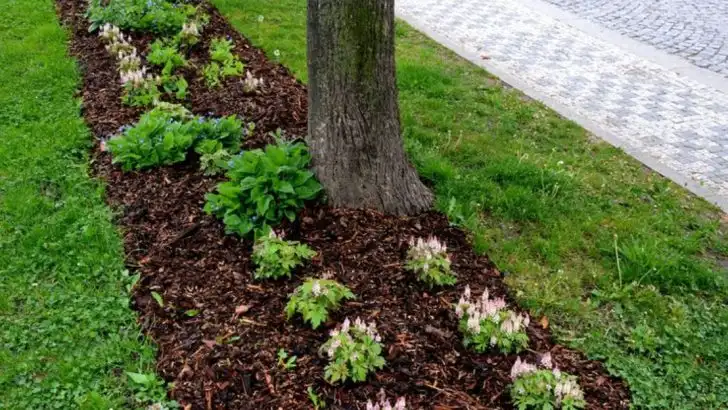Mulch is one of the best things you can add to your garden—but only if you’re doing it the right way. Unfortunately, many gardeners unknowingly make common mulching mistakes that do more harm than good—smothering roots, trapping moisture in the wrong places, and inviting pests and disease.
From piling mulch against tree trunks to using the wrong materials in the wrong spots, these habits can seriously impact plant health. Instead of nourishing your garden, bad mulching practices can suffocate your soil and stunt plant growth.
In this article, we break down what to avoid, what to fix, and how to mulch smarter—so your garden stays healthy, breathable, and thriving all season long.
Over-Mulching
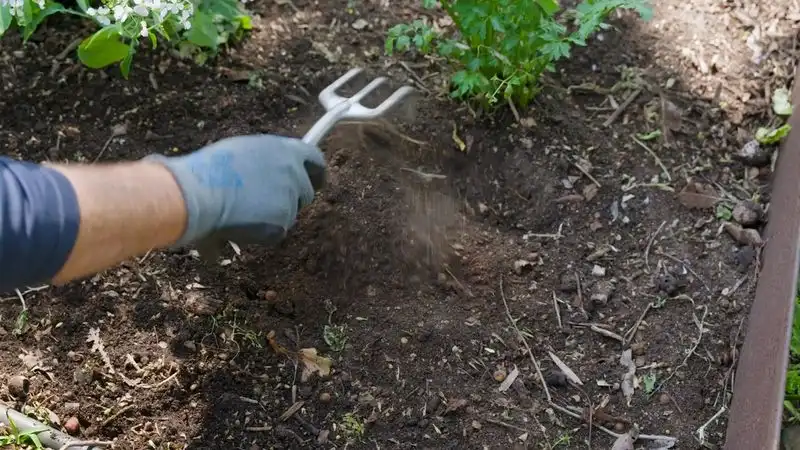
Is more always better? Not when it comes to mulch. Over-mulching can create a barrier that prevents water and air from reaching plant roots. This can lead to root rot and fungal diseases. It’s a bit like wearing too many layers on a hot day—you end up suffocating rather than staying warm. Keep your mulch layer to about 2-3 inches to allow your garden to breathe. Remember, moderation is key! Excessive mulch can also invite pests, which thrive in the moisture-rich environment.
Volcano Mulching
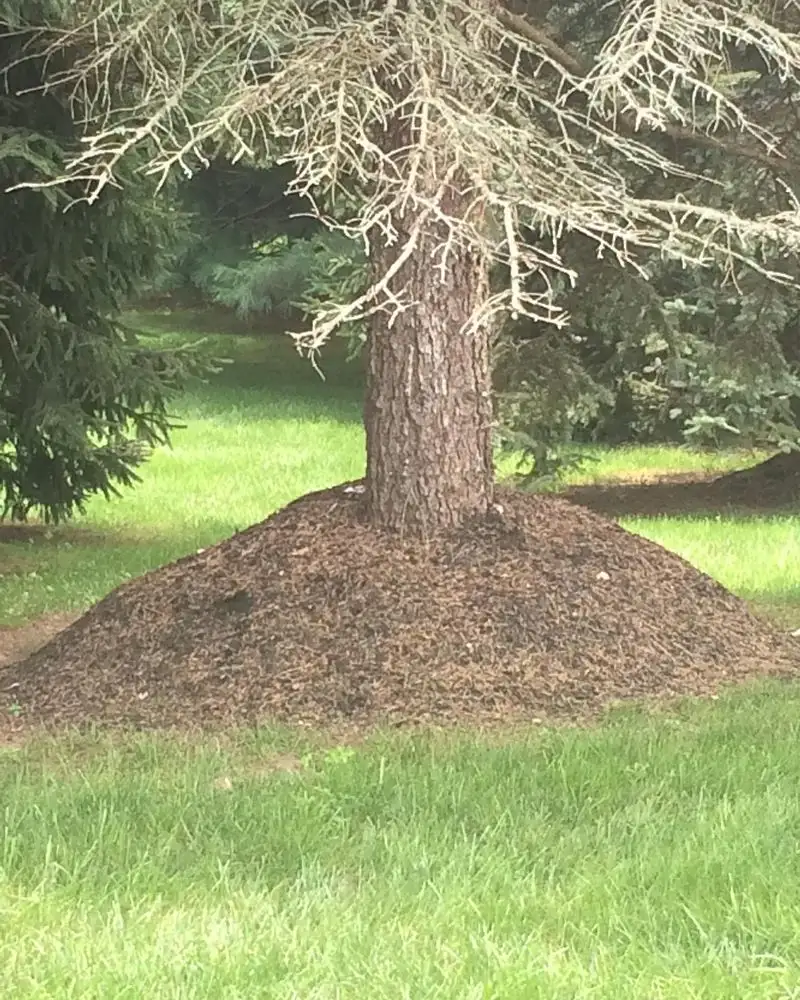
Have you ever seen mulch stacked high against a tree trunk like a volcano? This is a common yet harmful practice. Volcano mulching can cause decay at the base of trees and shrubs. It encourages pests and diseases due to trapped moisture. Instead, form a donut-shaped ring around the tree base, keeping mulch away from direct contact. This simple change can significantly improve your plant’s vitality. The tree trunk needs space to breathe, just as much as the roots do!
Using Uncomposted Materials
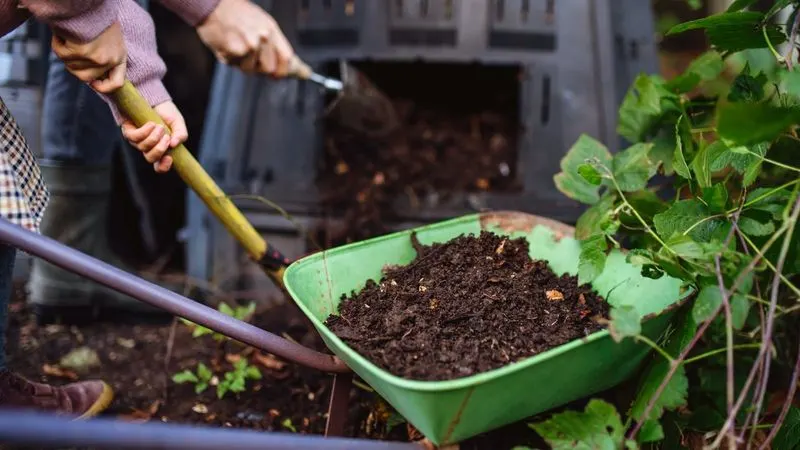
Using fresh materials like green grass clippings or leaves might seem convenient, but these can harm your garden. Uncomposted materials may rob the soil of nitrogen as they decompose, starving your plants. It’s like expecting your car to run smoothly on old engine oil. Compost materials first to ensure they are nutrient-rich and safe for plant use. By allowing materials to decompose properly, you provide a balanced environment for your plants. Properly composted mulch nourishes rather than depletes your garden.
Ignoring Mulch Type
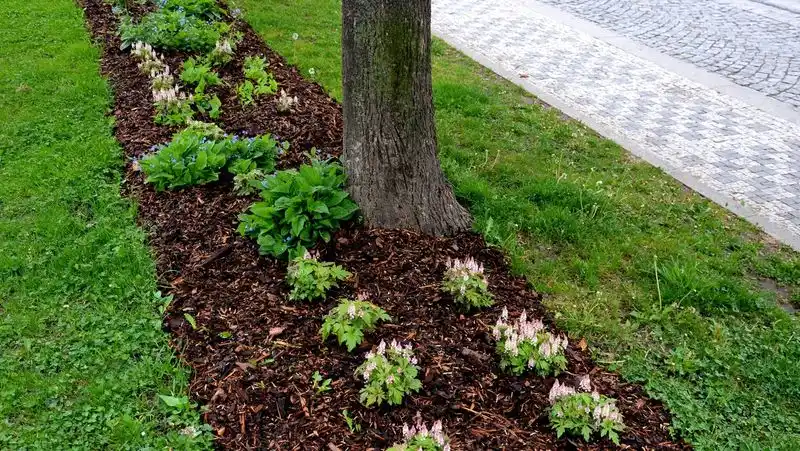
Not all mulch is created equal. Some types can be detrimental if used improperly. For instance, rubber or stone mulch can increase soil temperature, stressing plants during hot weather. It’s essential to pick the right mulch for your garden’s specific needs. Organic mulches, like wood chips or straw, are generally beneficial. They break down naturally, improving soil structure and fertility. Consider what each mulch type offers, and choose wisely to ensure your garden thrives.
Mulching at the Wrong Time
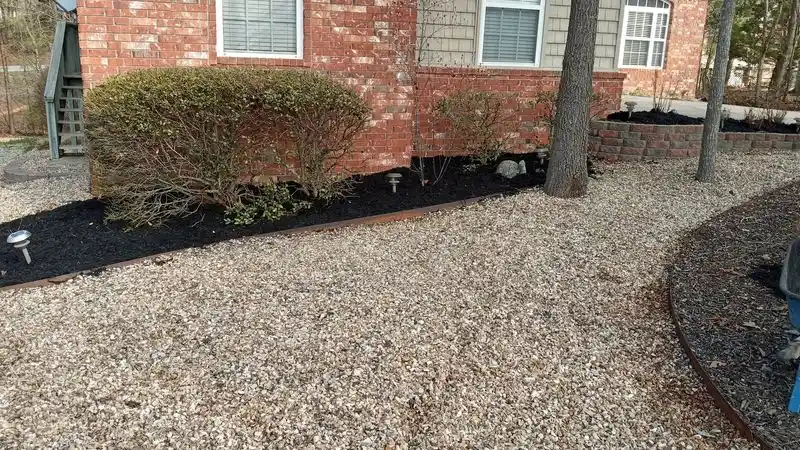
Timing is everything in gardening, including when you mulch. Applying mulch during the wrong season can hinder growth. Spring is ideal as it helps soil retain moisture after winter. Fall mulching can protect soil from extreme cold. Applying mulch at inappropriate times can do more harm than good. For instance, late spring might trap heat in soil, while winter mulching too early can prevent soil from freezing properly. Timing your mulching efforts ensures your garden reaps all the benefits.

